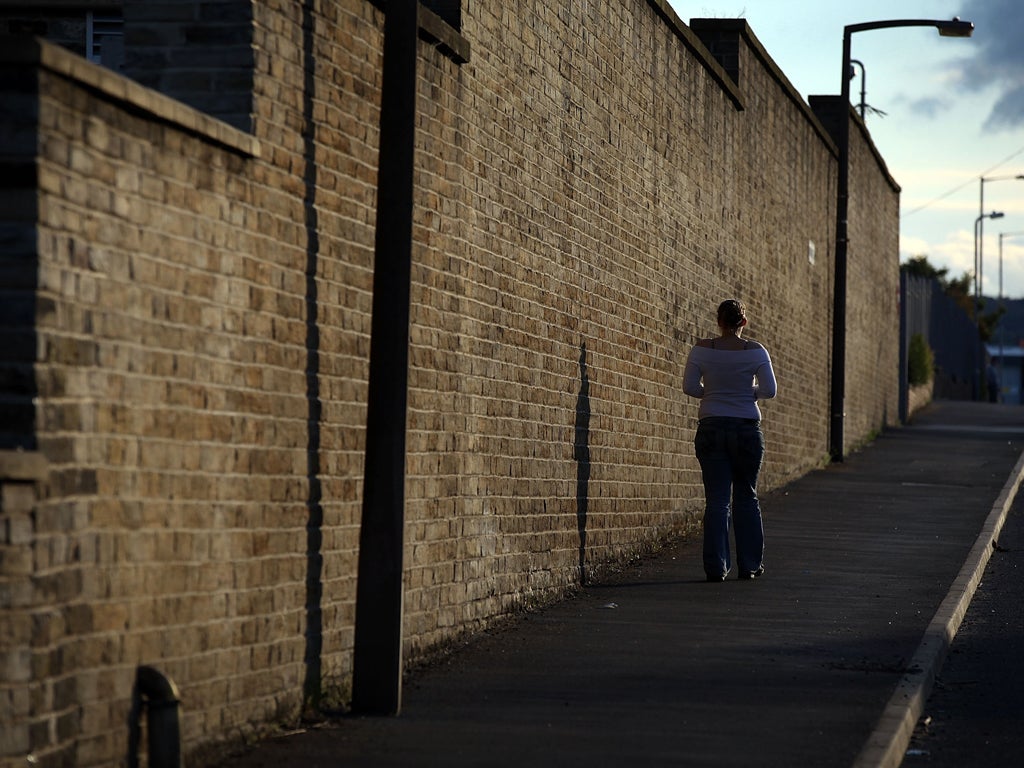Why do we care about Megan Stammers from Eastbourne but not "Suzie" from Rochdale?
The authorities knew about the girls’ plight in Rochdale and did nothing. But every girl deserves to be respected, regardless of her background

We live in a society that is not terribly good at protecting young women. The same tabloid newspapers that spent this week making a show of searching the Continent for Megan Stammers routinely drool over the bodies of actors and singers barely out of training bras or send paparazzi to hound young women like Charlotte Church until they are forced to seek legal help. Magazines and billboards are plastered with nubile prepubescent-looking models while real prepubescents are turned away at police stations for reporting rape. There’s only one consistent message: young girls are not deemed to have any agency over their own bodies, or their own lives.
In this culture, young women are not treated as sexual beings, merely as sexual objects. The weary moral panic that crotch-flashing music videos and Playboy Bunny pencil cases are somehow “sexualising” young girls betrays the prejudice: female-bodied people can never really be sexual, only “sexualised”, and once they are tainted, once they start rolling up their school skirts and watching Rihanna grind her behind on YouTube, then the damage is done.
People who grow up being told that they have no agency are less likely to behave as though they do. Girls are imagined as constantly teetering on the edge of helpless harlotry, where what’s at stake is not their personhood, but their purity. Celebrities and middle-class girls, however, are tacitly assumed to be worthier of our anxiety than the teenage care-leavers who were the targets of grooming gangs in Rochdale and Rotherham.
When 15-year-old “Suzie” – not her real name – tried to tell police in Rochdale that she was being forced to have sex with strangers every night by a gang of adult men who controlled every aspect of her life, she was dismissed as a prostitute. “These men would be picking me up as soon as I got out of the school gates at three o’clock and taking me to houses,” “Suzie” told the BBC. “We’d go in and I’d basically be told to go into the bedroom and to take my pants off and they’d come in one after the other. Even my own dad rang social services to get help.”
Nobody, however, was prepared to help – neither the police nor social services. “Basically, they’d told my mum and dad that I was a prostitute and it was a lifestyle choice and that because I was only six months off turning 16 they wasn’t gonna do anything,” she said.
Young girls in deprived communities were written off. Yet, in very different circumstances, Megan Stammers, also 15, had every media outlet in the land publishing updates about her whereabouts and wellbeing until she showed up in Bordeaux yesterday.
The public was first made aware of child sex trafficking in Rochdale under headlines that screeched about “Asian sex gangs” and Islamic pederasty, but the stand-out fact here is that the authorities knew about these girls’ plight and did nothing. Systematic rape of children was ignored, not “in the interests of racial harmony”, as outlets like The Daily Telegraph continue to claim, but because the police and social services didn’t think the girls in question were worth protecting.
Police were ignoring this abuse because the victims were poor, because some of them were care-leavers, because they were assumed to be “wild” and out of control. Because they were not the sort of girls that the authorities usually care about, unless they’re out causing trouble. The axis of prejudice here is not race, but class.
Our collective anxiety about young girls and sex is far more Victorian than we would like to admit. It’s often more about protecting “innocence” than actually taking care of young people. When 15-year-old “Suzie”, frightened and hurt, spoke to the police about her situation, what did those Rochdale officers see? In all likelihood, they saw a girl from a deprived background who wasn’t “innocent” enough to be worth “saving” rather than a human being who deserved to be kept safe from harm and see her abusers face justice.
If women and girls are not truly respected as human beings with self-determination, sexual and otherwise, their consent cannot truly be respected, either – not when it is given, and not when it is violently taken away.
So we see young Megan from Eastbourne, naively making off with her schoolteacher, and “Suzie” from Rochdale, raped repeatedly for months by a brutal procession of strangers, as somehow equivalent – one is worth bothering about, and one was not.
We need to think again, and think hard, about how we understand agency, morality and consent, and recognise that whatever her social background, every girl deserves to have hers respected and treasured.
Join our commenting forum
Join thought-provoking conversations, follow other Independent readers and see their replies
Comments